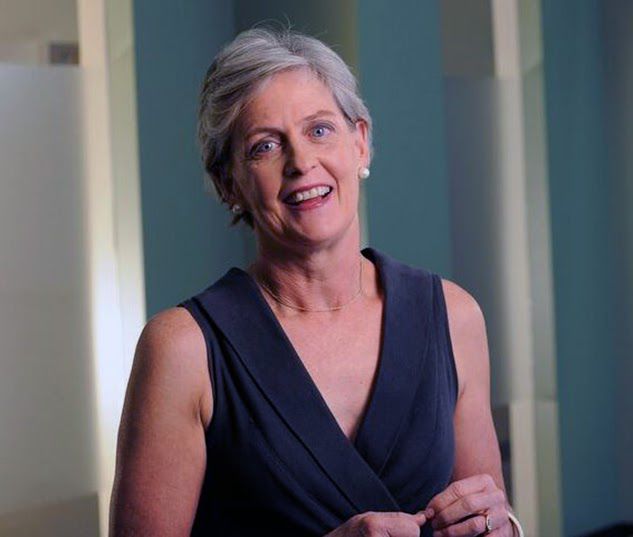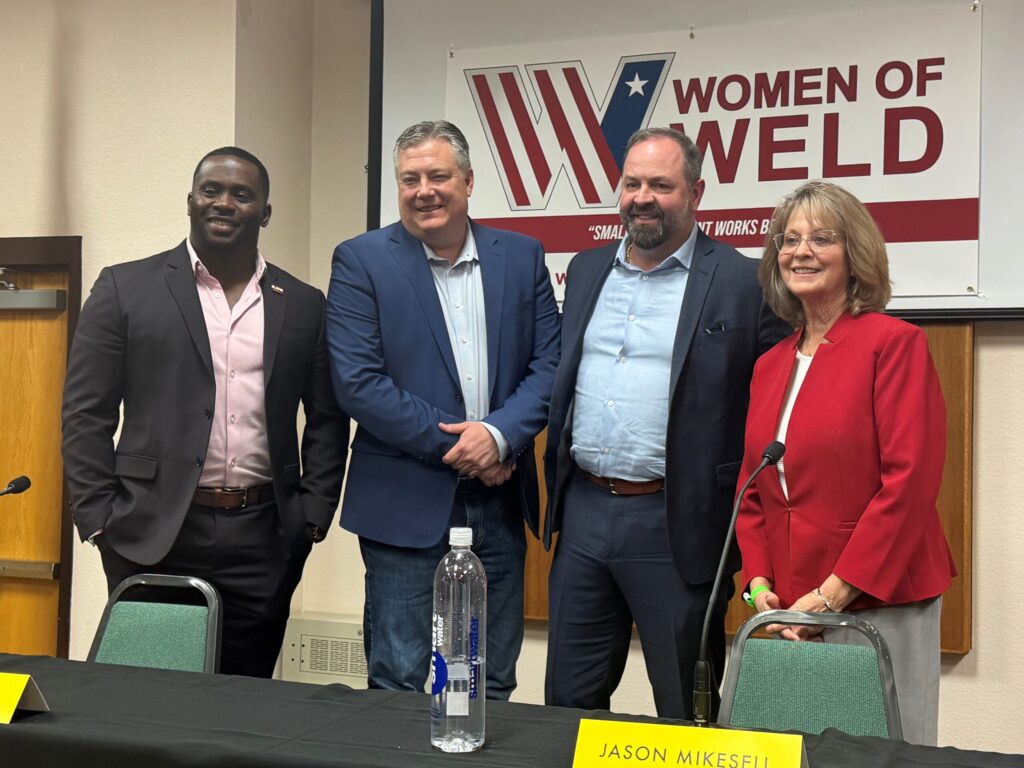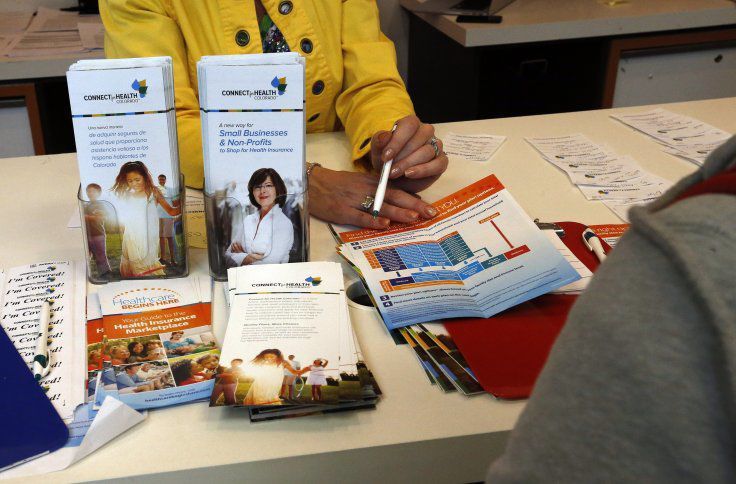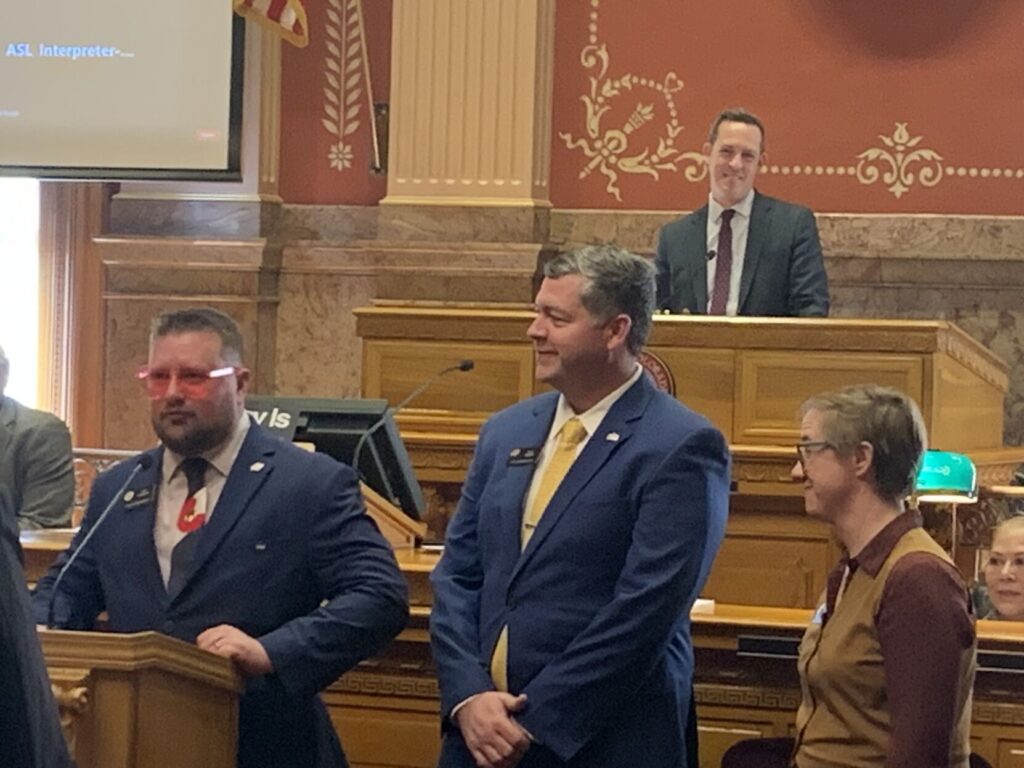Strode: Jeannie Ritter embraces mental health advocacy

Colorado’s former first lady Jeanne Ritter is actively involved in efforts to improve behavioral health services in the state. As mental health ambassador for the Mental Health Center of Denver, she establishes alliances within the mental health community and works to reduce duplication of efforts. Mental health is an issue she passionately adopted as first lady. In an interview with Catherine Strode, she says her passion for the issue has changed over time.
From where do you draw your passion for mental health advocacy?
I used to answer that question by stating that I have an older sister that has a bipolar diagnosis and from the impact that had on our family. Now, I have changed that answer to include all of us. It’s not really about one person in my family having a mental health issue. It’s about everyone in my world — family members, neighbors, coworkers — all of us, including myself, where behavioral health intersects in our lives. Anxiety, substance use, depression, as well as other severe diagnoses. We all move in a world where that is our community, and that’s where the passion comes from.
As mental health ambassador, what movement are you seeing in the field?
There are so many efforts going on in terms of behavioral health. I get to participate in a lot of conversations and, hopefully, move work forward. I have a really great 30,000-foot view to see what the efforts are going on out there. Where could we link efforts and really expand? I work across the spectrum on everything from early childhood, infant mental health, all the way to initiatives that have to do with chronically homeless folks that need supports and housing. I say, “all roads lead to mental health.” Regardless of what outcome you’re working toward, whether it’s obesity, grade level reading, employment or cardiac efforts, people are beginning to realize you can’t get there without walking through the doors of a behavioral health conversation. Everybody’s on board. It’s an integrated approach. It’s an inclusive approach. It’s an all-person approach. We no longer look at mental health as this stand-alone; we see it as a component to the overall health and well-being of a person.
Have recent violent events changed the dialogue among mental health professionals?
The dialogue is always in the keeping of what we always say, which is, “Let’s make sure we have trauma informed services.” We try to be a resource to the community. I have a colleague that works at CDPHE (the Colorado Department of Public Health and Environment), and he made sure I knew there are supports for the trauma reporters are experiencing even in the reporting of these events. The key word here would be trauma. We know that trauma exists, and we know what the byproducts of trauma are. How do we get earlier interventions in place and get folks to realize, whether they’ve been witnesses, part of the community, or working in any setting, it impacts all of us? It is not something we’re crafting. It’s absolutely real. What do we have as things that can help us build our own resiliency? What are the mechanisms we can call upon for our own calming so we build this collective, protective shield around us? What do we have in place to help us be protective in the future? A lot of us hope to cultivate those practices within the community where people are calling upon natural supports, building on natural supports, learning how to be a support to one another. Learning how we harness those tools to mitigate negative impacts and build that protective shield. Especially with children. Our children are exposed. It’s on the radio, it’s on the TV.
What is the Mental Health Center of Denver doing to support children’s mental health?
We have a robust infant mental health program here, as well as early childhood. It’s working with the two: the caregiver and the infant. Restoring that protective shield, or creating it, if it never existed, for the mom. Some folks, due to trauma in their earlier lives — maybe they have behavioral health challenges, maybe they live in unsafe environments — that is not always in place. There’s a lot of tension. We know infants feed off that tension. That starts this negative spiral. We don’t have to wait until there’s a full-blown crisis. When we can work with our primary-care doctors, our delivery doctors, we might know she’s going to have some challenges. Let’s put these supports in place. Let’s stack the odds for a healthy caregiver-infant relationship. If we need to, we keep that going where families may have experienced trauma or witnessed violence. Little children that have witnessed, and sometimes not even witnessed but they were in their crib, are absolutely impacted by the trauma that happened in that household. Capturing and intervening with those families — that’s all very exciting.
Catherine Strode, MPA, is Advocacy Denver’s policy and outreach specialist.













